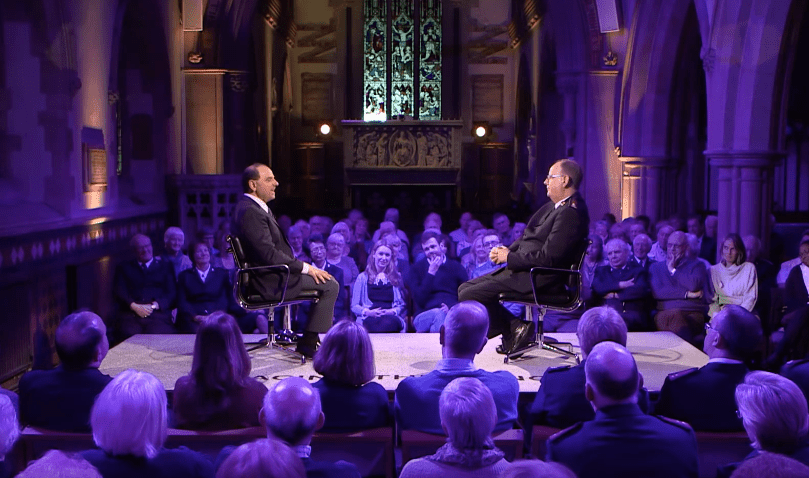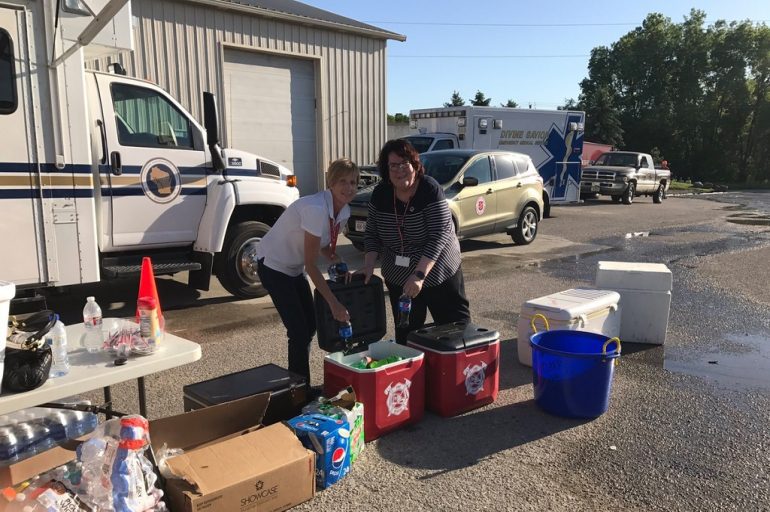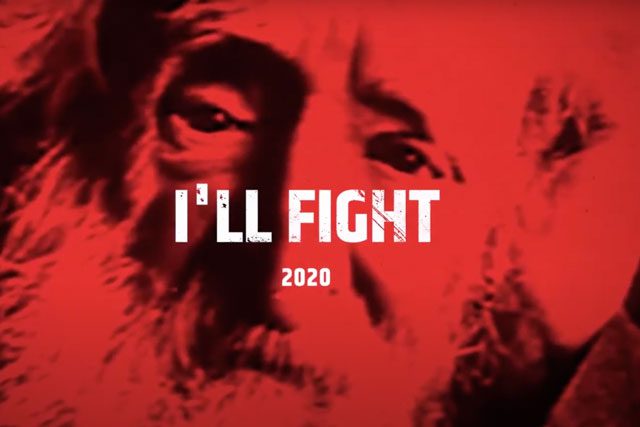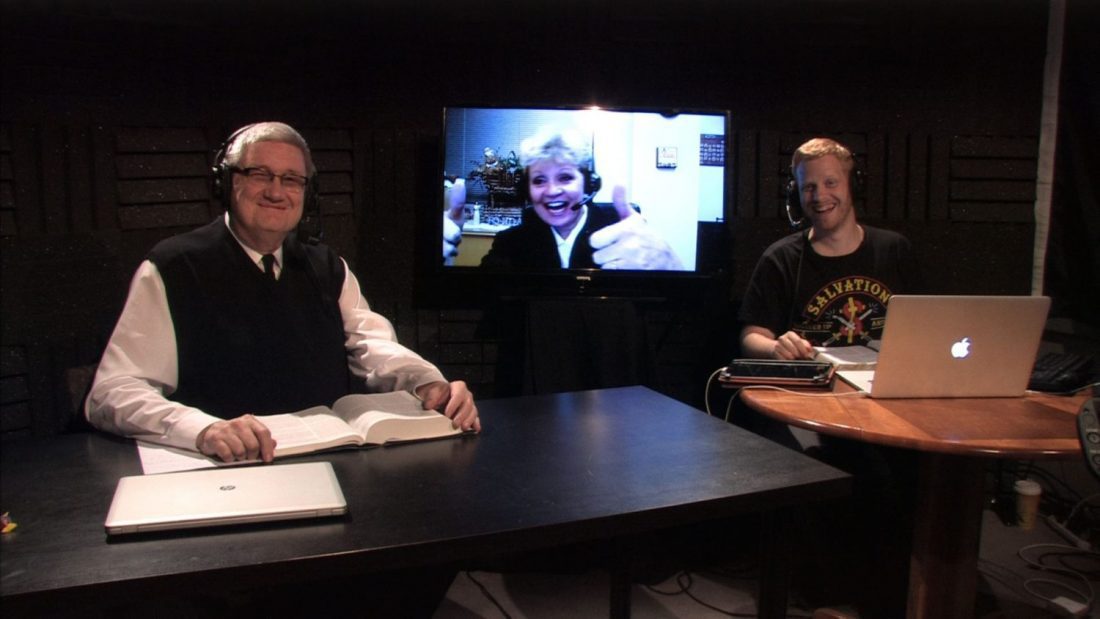Listen to this article
Listen to this article
Loading
Play
Pause
Options
0:00
-:--
1x
Playback Speed- 0.5
- 0.6
- 0.7
- 0.8
- 0.9
- 1
- 1.1
- 1.2
- 1.3
- 1.5
- 2
Audio Language
- English
- French
- German
- Italian
- Spanish
Open text
general andré cox ‘faces the canon’ in candid video interview. the general speaks on his initial resistance to become an officer when he was a teenager and the ways he grew in his faith during his 10-year appointment in zimbabwe. popular evangelist, speaker and anglican minister the rev canon j.john interviewed the salvation army’s international leader general andré cox as part of his online “facing the canon” series. the programs, which attract tens of thousands of viewers on youtube, have featured christian leaders, activists and writers such as the archbishop of canterbury, jackie pullinger and wm. paul young, author of “the shack.” the hour-long conversation with the general begins with his early years, growing up with his salvation army officer-parents in zimbabwe (then rhodesia), and his regret at not having seized the opportunity to learn an african language during this time. in a frank admission, he concedes that “if you’d asked me as a teenager what i wanted to be…salvation army officership would not have been high on my list…to say i was reluctant would be an understatement.” speaking of his personal walk of faith, cox reflected on a defining moment as a young man while waiting to watch a james bond movie. “just before i entered the cinema, i had a fleeting vision—i saw myself as a salvation army officer preaching the gospel in the context of africa,” he said. “in an instant, my life changed. i knew from that moment that that was god’s calling for me.” cox described how his ministry as a salvation army officer began with his wife silvia in corps appointments in switzerland, before they offered themselves for international service with no idea where they might end up. “it so happened that we were appointed to zimbabwe for 10 years,” cox said. the conversation included some light-hearted moments, when the general suggests finnish is the language that might be spoken in heaven “because it takes an eternity to learn.” but the interview also had moments of solemnity and deep reverence for the way that god has worked in his life. “when we became officers, we signed a commitment that wherever we are asked to go, we would accept,” cox said. “i’ve taken appointments that i wouldn’t have chosen for myself, but when i look back there’s not one [appointment] that i regret, or had a sense that god wasn’t in it or didn’t have a plan.” the general spoke of the challenging nature of his appointment to south africa, the pain of apartheid and the harsh reality of the divide between rich and poor. “the scale was overwhelming,” he said, recalling the one million people living close to his home under corrugated iron sheets. pertinently, the general speaks of the “two-dimensional salvation” he understands from salvation army founder william booth’s teaching, and the way this is still reflected in the army’s international mission statement: “to preach the gospel of jesus christ and to meet human needs in his name without discrimination.” the general cites examples of this integrated approach as diverse as a salvation army hospital in rural zimbabwe and an employment scheme in canada which is giving jobs and hope to the “unemployable.” “one of the privileges i’ve had [as general] is to see the kaleidoscope and the beauty of the salvation army,” cox said. “yet the reality that it is one family. wherever we go, we feel at home. we’re with people who signed up to the same commitments as ourselves, fulfilling the same mission.” he saved his strongest words for the salvation army’s work to counter what he describes as the “scourge of the 21st century”—human trafficking. “it is a blight on our common humanity, that after so many years these issues still prevail…it really must anger the heart of god.” in conclusion, j.john asks the general what he would like written on his tombstone. “how about this: ‘general andré loved jesus and loved people’” cox said. “i’d be happy with that, yes. because really, that’s the heart of the salvation army.”.
Open context player
Close context player
Plays:-Audio plays count
general andré cox ‘faces the canon’ in candid video interview. the general speaks on his initial resistance to become an officer when he was a teenager and the ways he grew in his faith during his 10-year appointment in zimbabwe. popular evangelist, speaker and anglican minister the rev canon j.john interviewed the salvation army’s international leader general andré cox as part of his online “facing the canon” series. the programs, which attract tens of thousands of viewers on youtube, have featured christian leaders, activists and writers such as the archbishop of canterbury, jackie pullinger and wm. paul young, author of “the shack.” the hour-long conversation with the general begins with his early years, growing up with his salvation army officer-parents in zimbabwe (then rhodesia), and his regret at not having seized the opportunity to learn an african language during this time. in a frank admission, he concedes that “if you’d asked me as a teenager what i wanted to be…salvation army officership would not have been high on my list…to say i was reluctant would be an understatement.” speaking of his personal walk of faith, cox reflected on a defining moment as a young man while waiting to watch a james bond movie. “just before i entered the cinema, i had a fleeting vision—i saw myself as a salvation army officer preaching the gospel in the context of africa,” he said. “in an instant, my life changed. i knew from that moment that that was god’s calling for me.” cox described how his ministry as a salvation army officer began with his wife silvia in corps appointments in switzerland, before they offered themselves for international service with no idea where they might end up. “it so happened that we were appointed to zimbabwe for 10 years,” cox said. the conversation included some light-hearted moments, when the general suggests finnish is the language that might be spoken in heaven “because it takes an eternity to learn.” but the interview also had moments of solemnity and deep reverence for the way that god has worked in his life. “when we became officers, we signed a commitment that wherever we are asked to go, we would accept,” cox said. “i’ve taken appointments that i wouldn’t have chosen for myself, but when i look back there’s not one [appointment] that i regret, or had a sense that god wasn’t in it or didn’t have a plan.” the general spoke of the challenging nature of his appointment to south africa, the pain of apartheid and the harsh reality of the divide between rich and poor. “the scale was overwhelming,” he said, recalling the one million people living close to his home under corrugated iron sheets. pertinently, the general speaks of the “two-dimensional salvation” he understands from salvation army founder william booth’s teaching, and the way this is still reflected in the army’s international mission statement: “to preach the gospel of jesus christ and to meet human needs in his name without discrimination.” the general cites examples of this integrated approach as diverse as a salvation army hospital in rural zimbabwe and an employment scheme in canada which is giving jobs and hope to the “unemployable.” “one of the privileges i’ve had [as general] is to see the kaleidoscope and the beauty of the salvation army,” cox said. “yet the reality that it is one family. wherever we go, we feel at home. we’re with people who signed up to the same commitments as ourselves, fulfilling the same mission.” he saved his strongest words for the salvation army’s work to counter what he describes as the “scourge of the 21st century”—human trafficking. “it is a blight on our common humanity, that after so many years these issues still prevail…it really must anger the heart of god.” in conclusion, j.john asks the general what he would like written on his tombstone. “how about this: ‘general andré loved jesus and loved people’” cox said. “i’d be happy with that, yes. because really, that’s the heart of the salvation army.”.
Listen to this article















